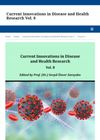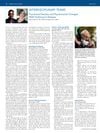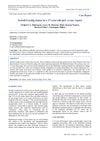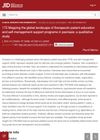
Health care providers should address the emotional challenges of SLE patients with comprehensive care.
 January 2021 in “Dalhousie Medical Journal”
January 2021 in “Dalhousie Medical Journal” Alopecia, a hair loss issue, needs both medical and psychological treatments due to the limited effectiveness of drugs alone.

The interdisciplinary approach improved the quality of life for a Parkinson's patient and eased staff workload.
8 citations,
September 2013 in “Journal of Social Service Research” Lupus causes emotional and social challenges, but support from friends helps reduce depression and anxiety.
 162 citations,
August 2004 in “Journal of Investigative Dermatology”
162 citations,
August 2004 in “Journal of Investigative Dermatology” Hair loss causes stress and affects mental health; treatment and support needed.
August 2021 in “Journal of the American Academy of Dermatology” The study evaluated how alopecia areata severity relates to its psychosocial effects on patients.
 April 2024 in “International journal of reproduction, contraception, obstetrics and gynecology”
April 2024 in “International journal of reproduction, contraception, obstetrics and gynecology” A 17-year-old girl was diagnosed with a rare ovarian tumor, emphasizing the need for fertility preservation and psychosocial care.
 March 2021 in “The British Journal of Psychiatry”
March 2021 in “The British Journal of Psychiatry” Countries with stricter cultures had fewer COVID-19 cases and deaths, paranoia is linked to false memories, psychosocial intervention works as well with or without antipsychotic drugs for young people with psychosis, smartphones can detect changes in behavior indicating illness relapse, and recruitment agents show regional and gender biases.
 October 2008 in “The Journal of Urology”
October 2008 in “The Journal of Urology” Finasteride reduces prostate cancer risk but may increase high-grade tumors and has side effects; biopsy methods have similar outcomes; psychosocial factors affect sexual recovery post-surgery.
52 citations,
October 1997 in “American Journal of Psychiatry” Trichotillomania is a complex condition involving compulsive hair pulling that causes distress and hair loss.
 48 citations,
September 2013 in “Oncologist”
48 citations,
September 2013 in “Oncologist” Endocrine therapies for cancer significantly increase the risk of hair loss.
 16 citations,
January 2013 in “Indian Journal of Dermatology, Venereology and Leprology”
16 citations,
January 2013 in “Indian Journal of Dermatology, Venereology and Leprology” New treatments and early diagnosis methods for permanent hair loss due to scar tissue are important for managing its psychological effects.
14 citations,
March 1994 in “Archives of Dermatology” A married couple both developed alopecia areata, possibly due to shared stress.
12 citations,
January 2020 in “Indian Dermatology Online Journal” Female pattern hair loss has multiple causes and treatments, with new therapies showing promise.
7 citations,
March 2022 in “Journal of the American Academy of Dermatology” Stress can trigger or worsen alopecia areata.
 7 citations,
February 2022 in “JAAD International”
7 citations,
February 2022 in “JAAD International” COVID-19 may be linked to hair loss or worsening of hair loss in some people.
 6 citations,
May 2022 in “Frontiers in Medicine”
6 citations,
May 2022 in “Frontiers in Medicine” The study suggests pandemic stress might worsen or trigger hair loss problems.
 5 citations,
November 2011 in “Expert Review of Dermatology”
5 citations,
November 2011 in “Expert Review of Dermatology” The document concludes that early diagnosis and a comprehensive treatment plan are crucial for managing hair loss in children, with a focus on both medical and psychological support.
 4 citations,
November 2022 in “Frontiers in Medicine”
4 citations,
November 2022 in “Frontiers in Medicine” People with alopecia areata are more likely to have anxiety and depression and a lower quality of life.
 4 citations,
May 2011 in “PubMed”
4 citations,
May 2011 in “PubMed” Alopecia should be treated as a medical condition because it may increase the risk of serious diseases and psychological issues.
 2 citations,
July 2022 in “Journal of The American Academy of Dermatology”
2 citations,
July 2022 in “Journal of The American Academy of Dermatology” People with alopecia who are more resilient tend to feel less stressed.
 2 citations,
October 2009 in “The FASEB Journal”
2 citations,
October 2009 in “The FASEB Journal” Stress does not greatly speed up aging or hair loss in politicians.
 July 2024 in “Berkala Ilmu Kesehatan Kulit dan Kelamin”
July 2024 in “Berkala Ilmu Kesehatan Kulit dan Kelamin” Proper diagnosis and treatment of hair loss in children are crucial to prevent lasting issues and maintain their quality of life.
 March 2024 in “CRC Press eBooks”
March 2024 in “CRC Press eBooks” Androgenetic alopecia causes hair loss, impacting self-esteem and confidence.
 January 2024 in “Indian Journal of Plastic Surgery/Indian journal of plastic surgery”
January 2024 in “Indian Journal of Plastic Surgery/Indian journal of plastic surgery” The flap advancement technique effectively treats severe scalp skin conditions, preserving hair and improving appearance.
 April 2021 in “European journal of medical and health sciences”
April 2021 in “European journal of medical and health sciences” The pandemic stress may have increased alopecia cases in Bangladesh.
 September 2019 in “Journal of Investigative Dermatology”
September 2019 in “Journal of Investigative Dermatology” There are various tools available to help psoriasis patients manage their condition, but their effectiveness is unclear and they face issues like lack of financial support.
September 2016 in “Oncology times” Breast cancer survivors often face body image and sexual health issues, needing ongoing support and open communication with healthcare providers.
 November 1999 in “Journal of Cutaneous Medicine and Surgery”
November 1999 in “Journal of Cutaneous Medicine and Surgery” Treatments for hair loss include hormone modifiers, minoxidil, and hair transplant surgery.
12 citations,
May 2019 in “Journal of cosmetic dermatology” Effective treatments for premature hair graying still require significant research.






















